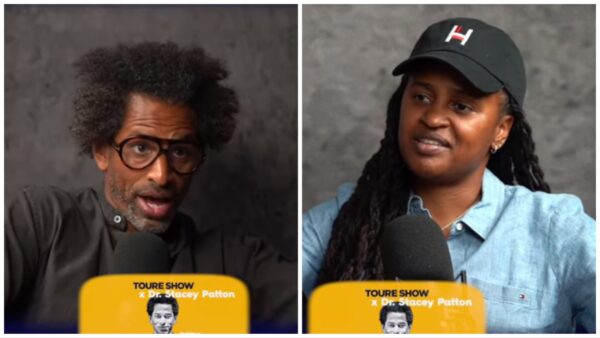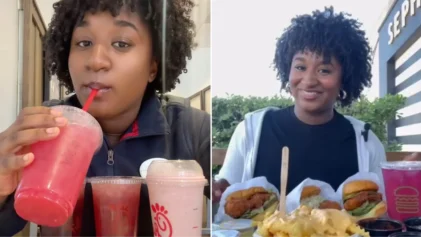Whupping your kids may have more history and generational warfare to it than you think.
Writer and podcaster Touré recently sat down with award-winning author and child advocate Stacey Patton on his podcast, the Touré Show, to discuss a commonplace disciplinary action within Black households: spankings.
The pair delved into a lengthy discussion about this form of punishment and its deep roots in the history of enslavement and generational behaviors.

“Beating a Black child is the whitest thing that you can do to destroy them psychologically, spiritually, emotionally, and physiologically,” said Patton, who has a doctorate in African-American history.
As a former foster youth and child abuse survivor, Patton has spent the majority of her career reporting and speaking on child welfare, race relations, the foster care system, and the adultification of Black children.
In her appearance on the Touré Show, she specifies that corporal punishment and ritualistic violence against children originated in Europe and were subsequently carried out against enslaved people, facts that she underscores heavily in her book “Spare The Kids: Why Whupping Children Won’t Save Black America.”
These practices made their way into Black households and family units from fear of enslavers and violent white supremacists during the Jim Crow era, according to Patton. Oral histories tell us that Black parents in those times thought beating their children would spare the kids from worse beatings and punishments from slavemasters or Klansmen.
“There was this idea that ‘Well if I beat you, you’re gonna be alive at the end of the day, whereas if the Klan gets their hands on you, you’re dead,'” Patton explains of Black parents’ justifications for beatings at that time. “And so we fast forward to this century, and you have Black people saying, ‘If I don’t beat my child, then the police will kill them.'”
Patton also cited data from The Washington Post that revealed that more Black children were killed by their parents in child maltreatment cases than by the police over a five-year period during the Black Lives Matter movement.
Many social media users commented on how enlightening Patton’s comments were.
“This is more phenomenal than our society is willing to own up to,” one person wrote on YouTube.
“As I reflect on my childhood and how I parented my child, I realize how deeply we were taught to normalize psychic, physical, emotional, and spiritual violence against our children. This was extremely painful to hear but NECESSARY!” someone else wrote.
“This feels totally accurate as I learn about my family and European roots,” one TikTok user wrote under a clip of Patton’s comments.
Patton says gentle parenting, a parenting style utilized to offset authoritarian parenting approaches, is a means of education for today’s parents to understand how to examine themselves when they judge their child’s age-appropriate emotional responses and overall development.
“A lot of these parents can’t give their children what wasn’t given to them. So if you were raised in a house where there was impatience, where there was no empathy, where there was a lot of yelling and hitting because you were doing developmentally normal things, then here you are as a parent and your child does that exact developmentally normal thing that you did as a kid … then the instinct is to do the exact same thing. You’re really responding to some stuff from your own past when you’re projecting that back on your kids.”
Child psychologist Irina Gorelik told CNBC says gentle parenting reduces power struggles between parents and children and helps kids develop confidence, independence, self-esteem, and strong emotion regulation skills.
Patton emphasized the importance of becoming friends with your children to neutralize unhealthy fears that might be born from the parent-child relationship.
“You can’t learn anything when you’re afraid. You can’t have true trust and honesty when there’s fear. Again, that’s not how the brain works,” Patton said.


